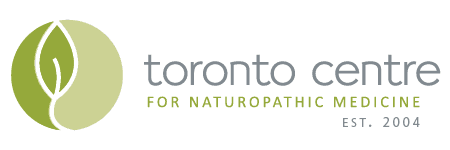Rotator cuff injury is well-treated using naturopathic medicine.
Your rotator cuff is made up of the muscles and tendons in your shoulder. These muscles and tendons connect the bone of your upper arm (humerus) with your shoulder blade and help hold the “ball” of your upper arm bone firmly in your shoulder “socket”.
Rotator cuff injuries include any irritation or damage to your rotator cuff muscles or tendons and can be caused by any action that stresses these structures (e.g., trauma, poor posture, lifting or pulling, repetitive overhead arm activity).
Seek professional healthcare if shoulder pain is severe, lasts longer than one week or if you are unable to use your arm.
Symptoms of Rotator Cuff Injury
Possible symptoms of rotator cuff injury include:
- Shoulder pain
- Shoulder weakness
- Decreased shoulder range of motion
- Aggravation of pain by raising arm overhead
Treatment of Rotator Cuff Injury at Toronto Centre for Naturopathic Medicine
At Toronto Centre for Naturopathic Medicine, the goal of rotator cuff injury treatment is complete resolution of pain and recovery of function.
Conventional treatment for rotator cuff injury may include physical therapy or surgery, or steroid injections. These treatments may have long-term side effects.
For this reason, you may choose to try natural treatment to possibly avoid use of conventional medications, or together with conventional medications in order to decrease dosages of conventional medications required to manage your rotator cuff symptoms.
Naturopathic treatment of any chronic health concern must be recognized as a process that involves:
- Identifying specific treatment goals
- Development by your naturopathic doctor, of a thorough understanding of all factors affecting your health, including physical, psychological, emotional and lifestyle factors
- Development of a comprehensive treatment plan
- Implementation and maintenance of that plan through periodic monitoring and adjustment
At Toronto Centre for Naturopathic Medicine, a typical approach to treating rotator cuff injury may be to:
- Identify and address underlying factors in your lifestyle (e.g., poor posture) or general health (e.g., muscle imbalances) that may be contributing to development of rotator cuff injury
- Resolve pain using acupuncture, Bowen Therapy or Suikodo™
- Prevent recurrence using acupuncture, Bowen Therapy or Suikodo™ maintenance protocols
Where appropriate, a number of therapeutic options are available, to be used alone, or more often in a complementary fashion, including:
- Nutritional counseling
- Nutritional supplements
- Metabolic detoxification protocols
- Botanical (herbal) medicines
- Acupuncture
- Homeopathy
- Bowen Therapy
- Suikodo™
- Hydrotherapy
- Exercise prescription
- Relaxation (meditation) training
- Lifestyle medicine and counseling
Treatments provided by naturopathic doctors are covered by most extended healthcare plans.
References
Rotator cuff injury [Internet]. Mayo Foundation for Medical Education and Research; [cited 2009 Feb 18]. Available from: http://www.mayoclinic.com/health/rotator-cuff-injury/DS00192.


